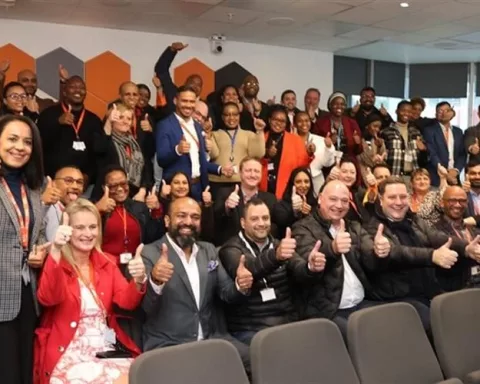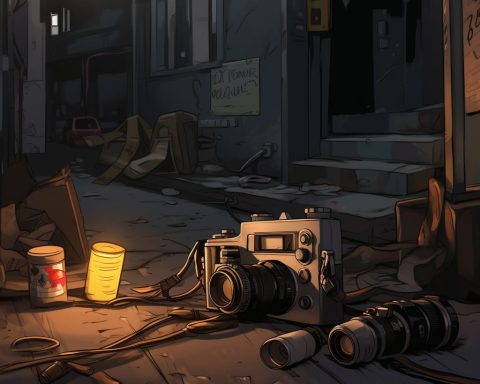Zululand’s economic progress is facing challenges due to crime, which threatens the stability of the business sector and the safety of citizens. President Cyril Ramaphosa and his administration engaged in a dialogue with Durban’s business community to tackle these issues and lay the groundwork for the KwaZulu-Natal (KZN) economy’s expansion. SAPS has made considerable progress in combating criminal organizations and individuals despite budgetary restrictions, and the business sector, civil society, and law enforcement need to work together to create a safe business environment. However, the government remains devoted to ensuring that police continue their work across the region to improve law enforcement in identified areas.
How is Zululand’s economic progress affected by security concerns?
Zululand’s economic progress is intricately linked to the challenges of crime that threaten the stability of the business sector and the safety of citizens. President Cyril Ramaphosa and his administration engaged in a dialogue with Durban’s business community to tackle these issues to lay the groundwork for the KwaZulu-Natal (KZN) economy’s expansion. SAPS has made considerable progress in combating criminal organizations and individuals despite budgetary restrictions, and the business sector, civil society, and law enforcement need to work together to create a safe business environment.
Zululand’s economic progress is sculpted by the complex interaction of authorities, the business sector, and societal norms. The business realm of this region, multifaceted and vibrant, spins the economic thread that propels community progression and expansion. However, it grapples with the persistent problem of crime, posing a threat to human lives and financial stability.
Landmark Conversation: Addressing Economic Challenges
On February 23, a significant dialogue occurred. President Cyril Ramaphosa accompanied by his government delegation initiated a meeting with Durban’s business community. The objective? To tackle the issues plaguing the business sector and lay the groundwork for the expansion of the KwaZulu-Natal (KZN) economy. Police Minister General Bheki Cele, a crucial participant in the delegation, partook in rigorous and candid conversations. Importantly, business leaders from the Zululand region implored the South African Police Service (SAPS) to tackle safety issues that jeopardize their existence and economic sustainability.
In response to these pleas, the authorities pledged to collaborate with the region’s business sector to develop strategies that would alleviate the crime issues. This pledge culminated in a productive meeting between the Police Ministry, SAPS spearheaded by National Commissioner General Fannie Masemola, and the Zululand Chamber of Commerce and Industry led by CEO Hlengiwe Mvubu. The agreement was unanimous: regional stability and law enforcement needed prioritization.
Dedication to Security: SAPS’ Efforts
SAPS has been cognizant of the region’s issues for a while. From 2021 onward, provincial teams have been concentrating on the region’s criminal activities. A stabilisation team set up in September 2022 remains in action there. These teams, meticulously probing criminal organizations and individuals, have made considerable progress. They have examined 68 cases, leading to the apprehension of 43 persons on various charges, including murder, theft, handling of stolen goods, and fraud.
The success of these teams is evident. Over the past three years, they have seized 202 firearms, including rifles and handguns, over 2,000 rounds of ammunition, valuable drugs, and seven stolen vehicles. These accomplishments validate SAPS’ dedication to the region and its resolve to eliminate criminal behavior, despite budgetary limitations.
Business Sector: The Lifeline and its Vulnerability
The business sector’s value extends beyond mere economic expansion. It serves as a vital source for communities, creating job opportunities and generating wealth. However, it remains susceptible to the ramifications of crime. This understanding emphasizes the importance of cooperation among the business community, civil society, and law enforcement in dealing a strong hand against criminality.
As SAPS continues its investigation of all offenses, it promises to bring those engaging in illicit activities to the law’s attention. The central principle here is explicit: engaging in business should neither lead to criminal activities nor endanger life. Businesses and communities should flourish without fear – this is an uncompromising ideal.
Government Commitment: Overcoming Budgetary Constraints
Despite budgetary challenges that require the reduction of operations, the government remains devoted to ensuring that police continue their work across the region. This commitment will result in increased funding, translating into additional resources and improved law enforcement in identified areas.
High-level interventions will empower specialized teams to eradicate criminal behaviors, laying the groundwork for economic development and community safety. Police teams stationed in the region will concentrate on removing criminal hindrances, nurturing an environment where Zululand communities can live and function without fear.
Zululand: A Model of Economic Resilience Amidst Crime
The Zululand region is at a critical crossroads. With determined steps towards creating a safe business environment, it seeks to become a symbol of economic resilience, a beacon of hope for its communities, and a paradigm for other regions battling similar issues.
As Zululand’s struggle against crime progresses, it offers essential lessons on the interconnectedness of economic growth, safety, and resilience, echoing Robert F. Kennedy’s famous words: “Every society gets the kind of criminal it deserves.” These words reverberate with the Zululand region’s experience, reminding us that the path to economic growth inevitably traverses the sphere of safety and security.
FAQ
1. What are the security concerns affecting Zululand’s economic progress?
Zululand’s economic progress is affected by the persistent problem of crime, which threatens the stability of the business sector and the safety of citizens.
2. What steps has the government taken to address these security concerns?
President Cyril Ramaphosa and his administration engaged in a dialogue with Durban’s business community to tackle these issues and lay the groundwork for the KwaZulu-Natal (KZN) economy’s expansion. SAPS has made considerable progress in combating criminal organizations and individuals despite budgetary restrictions. The government is committed to ensuring that police continue their work across the region to improve law enforcement in identified areas.
3. What is the role of SAPS in addressing the security concerns?
SAPS has been cognizant of the region’s issues for a while. From 2021 onward, provincial teams have been concentrating on the region’s criminal activities. They have examined 68 cases, leading to the apprehension of 43 persons on various charges, including murder, theft, handling of stolen goods, and fraud.
4. How does the business sector contribute to the region’s economic progress?
The business sector serves as a vital source for communities, creating job opportunities and generating wealth. However, it remains susceptible to the ramifications of crime.
5. What is the government’s commitment to overcoming budgetary constraints in addressing security concerns?
Despite budgetary challenges that require the reduction of operations, the government remains devoted to ensuring that police continue their work across the region. This commitment will result in increased funding, translating into additional resources and improved law enforcement in identified areas.
6. What is the significance of Zululand’s struggle against crime?
As Zululand’s struggle against crime progresses, it offers essential lessons on the interconnectedness of economic growth, safety, and resilience. It seeks to become a symbol of economic resilience, a beacon of hope for its communities, and a paradigm for other regions battling similar issues.












